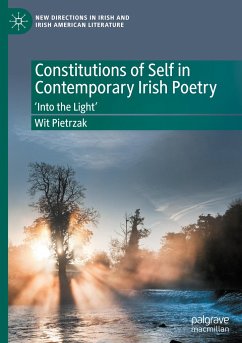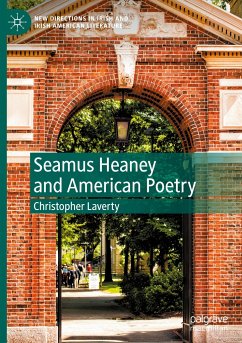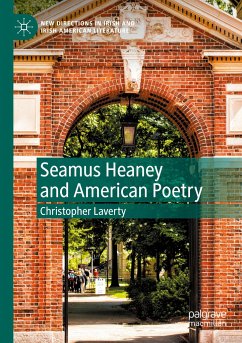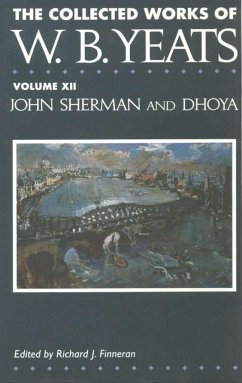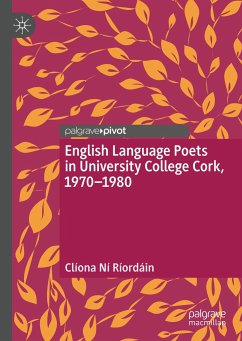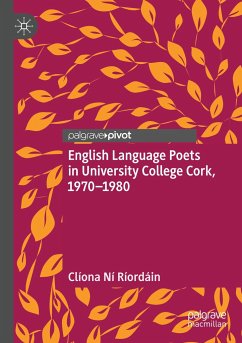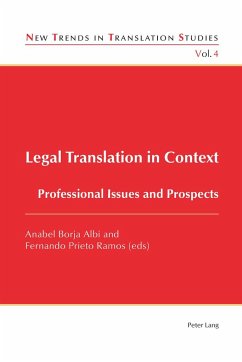
Constitutions of Self in Contemporary Irish Poetry
'Into the Light'
Versandkostenfrei!
Versandfertig in 6-10 Tagen
76,99 €
inkl. MwSt.
Weitere Ausgaben:

PAYBACK Punkte
38 °P sammeln!
Constitutions of Self in Contemporary Irish Poetry explores the figure of the lyrical self in the work of six contemporary Irish poets: Paul Muldoon, Vona Groarke, Sinéad Morrissey, Caitríona O'Reilly, Alan Gillis and Nick Laird. By focusing on the self, this study offers the first sustained exploration of what is arguably one of the most distinctive features of Irish poetry. Readings utilise the latest theories of the lyric filtered through the work of such philosophers as Jacques Derrida, Umberto Eco, Slavoj Zizek, Giorgio Agamben and Zygmunt Bauman, and connect an interdisciplinary approa...
Constitutions of Self in Contemporary Irish Poetry explores the figure of the lyrical self in the work of six contemporary Irish poets: Paul Muldoon, Vona Groarke, Sinéad Morrissey, Caitríona O'Reilly, Alan Gillis and Nick Laird. By focusing on the self, this study offers the first sustained exploration of what is arguably one of the most distinctive features of Irish poetry. Readings utilise the latest theories of the lyric filtered through the work of such philosophers as Jacques Derrida, Umberto Eco, Slavoj Zizek, Giorgio Agamben and Zygmunt Bauman, and connect an interdisciplinary approach with attention to the operations of the poetic text to bring out aspects of the self in Irish writing that have been given only cursory critical attention so far.





